(Carver Park Baptist Church is helping to lead a healthy food revolution in East Waco through their food related ministries. They have so much going on that we couldn’t squeeze it into one post. This is Part 2 of the story. Click here for Part 1. – ALW)
By Khristian Howard
Carver Park Baptist Church stands as one of the main resources for food in the East Waco community. Their food pantry, open every first and third Friday, serves 120 to 150 people each month. Though doors do not open until 9:30, a line of people from almost every Waco zip code can be seen stretching around the building as early as 8 a.m. Led by Helen Lewis and a team of volunteers from Carver, TSTC, and the community, the food pantry at Carver Park Baptist has proven to be a major resource and lifeline for the residents of East Waco.
In a recent chat with Mrs. Evelyn Moore, one of the leaders of the Carver Park Culinary Arts Ministry, we learned some of the history behind how Carver Park responded to the need for food in the neighborhood and evolved into the fully stocked pantry they run today.
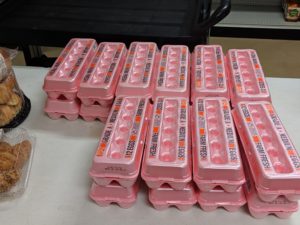
Reflecting on the early days of Carver Park Baptist, Mrs. Moore remembers the events that inspired the opening of their food pantry back in the 80s. “We had a small one [food pantry] that we partnered with TSTC in the 80s. We would carry milk, baby food, and other sustainable things like cereal.” The food pantry effort was a response to the newly adjusted programming at TSTC that allowed women to attend. Mrs. Moore stated, “…young girls that were coming to TSTC were coming with babies and other things trying to improve their lives, and there were many needs not being met because the program was not designed for women.”
In addition to the resources for TSTC students, the church would keep a small selection of shelf stable items for nearby residents who came seeking help. Usually though, they had to purchase foods to help these individuals to fill in the gaps. Moore stated, “We would have food drives and canned good drives and stuff, but it just was not substantial enough to help all of the people who would come in…so a lot of times they received a check or someone took them grocery shopping.”
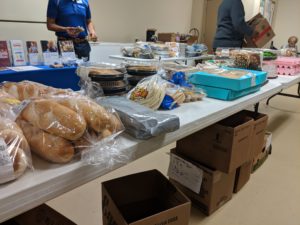
In its beginning, Carver Park’s food pantry was a product of collaboration with a sister church in the area, Lake Shore Baptist Church. In the beginning each church had its own food pantry working to fill food gaps and addressing the needs that affected not only their congregations, but the surrounding communities. Food pantries, however, while a widely popular idea among churches, are generally difficult to keep afloat at a sustainable level. Eventually, the pantry at Lake Shore Baptist closed, and the two churches agreed to have those clients use Carver’s pantry instead.
Eventually, the church gained the capacity to host a full food pantry in partnership with Central Texas Food Bank (CTFB). The CTFB provides a consistent, low-cost source of food. Partnerships like the one that Carver Park has with CTFB are vital to the sustainability of a pantry. The food that organizations like CTFB provide supports nutritional variety and health.
Helen Lewis keeps a nutritious diet in mind when placing orders with CTFB. She makes a careful selection of fruits, vegetables, and meats, and encourages pantry visitors to try new veggies and fruits before picking up sweets and other shelf stable goods. Her goal is to create a balance of both.
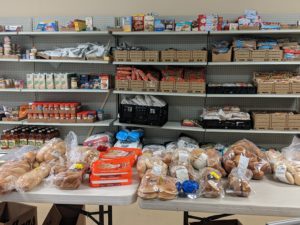
While the partnership with CTFB helps keep the pantry is well stocked, Ms. Lewis depends on relationships and collaboration with the community to supply many items as well. One such relationship is with Caritas, who provides in-kind toiletry donations. In addition, the senior group at Carver Park Baptist contributes by having a baking supply drive every February.
Volunteers from the church and TSTC help out on pantry days. Regular pantry users check-in quickly, and volunteers help new clients complete the short intake process that gauges family size and what benefits they can receive. Once the pantry guests are checked in, volunteers also assist with selecting and carrying food to their cars.
Ms. Lewis and her team have also found a way to reach clients who are unable to physically come to the pantry. The team prepares boxes for clients that are referred to them. These boxes are delivered to each client’s residence or kept at the ready for neighbors and loved ones to pick up.
Carver Park Baptist is just one example of a church stepping up to meet needs in the East Waco community. Other churches in the area have developed systems to address needs for food assistance, childcare, mentorship, and more. A network is growing of people who have made it their goal to take care of their own in a place where outside services do not always cover the needs. The ladies at Carver Park’s food pantry have shown that a mixture of inside and outside support may just be a reliable model for sustaining a healthy food pantry.

Khristian Howard is an Atlanta native and a recent graduate of Georgia State University where she earned a Bachelor’s Degree in Social Work. She has a passion for empowering communities through service, and seeks to connect advocacy to creativity. Currently, she is serving as the AmeriCorps VISTA for Texas Hunger Initiative Waco, where her work focuses on fostering collective impact to improve health and eating habits in East Waco. When she is not working, you may find her sharpening her culinary skills or exploring new poetic and artistic pathways.
The Act Locally Waco blog publishes posts with a connection to these aspirations for Waco. If you are interested in writing for the Act Locally Waco Blog, please email [email protected] for more information.
By Craig Nash
I’ve spent my life in church. In fact, I’ve been in church so much that the first sentence of this paragraph could ALMOST be read literally. One thing I’ve learned from this lifetime in church is that when we are doing things right, the way Jesus told us to do them, and taking care of “the least of these,” feeding the poor, clothing the naked and visiting the prisoners, we take great pride in this. And you know what? We should. The history of Christianity is filled with stories of hospitals on the battlefields of war and food distribution in the midst of famine. People of faith work with those on the margins of our communities in building houses and in putting checks on predatory lending agencies. Most organized efforts I’m aware of to end human trafficking or to place parentless children with families were started by someone sitting in a pew, hearing ancient words of redemption and hope.
Though there are many areas in my denominational tradition that I have come to have serious disagreements with, I always hold up the work of the Texas Baptist Men as a shining example of faith in action. When a natural disaster hits, they are almost always the first people on the ground. Their trucks are ready at a moment’s notice. These men and women, many of them retirees, and most without any formal theological education, take seriously the call of God to be light in the midst of despair. They use their gifts to walk alongside those who have lost everything and help them maintain a sense of dignity. Just about everyone in the disaster-management space holds them in high regard for the amazing work they do.
Last week I spoke with my colleague, John Puder, who is the Regional Manager for Child Hunger Outreach in the Southeast Texas region of the Texas Hunger Initiative, about the challenges with regards to food security in the midst of the devastation brought by Hurricane Harvey. In Harris County alone, the families of over 1.2 million children rely on local school districts to supplement the meals they provide to their kids. When schools shut down this gap was no longer able to be filled, which left a number of agencies scrambling to find ways to continue meal service. Another challenge was in staffing of child nutrition programs. Because of displacement, lost cell reception and other factors associated with the storm, many who work in child nutrition remained unaccounted for when schools and other meal providers were able to resume services.
It the midst of all of this, John told me that the faith community, including organizations like Texas Baptist Men, really stepped up to the plate where they could to meet the needs of those who had lost everything. It was inspiring and a model for how we are called to live in the world.
Yet there is a belief among many in my churchy world, whether because of politics, theology, or just a sense that we do it so well, that faith communities are the only institutions that should be doing relief work and addressing the needs of the poor and marginalized. This well-intentioned sentiment doesn’t take into consideration an important historical fact, which is that the history of Christianity (and, I assume, other faith groups,) is one of partnering with other entities when it is helpful, even if we live in tension with those same entities when it isn’t.
In fact, the early spread of Christianity was made possible by an “accident” of history that allowed the Church to make strategic use of the systems created by the Roman Empire. Roads built by Rome allowed missionaries to carry the message of Jesus across the known world. The “Pax Romana,” a time of peace enacted by a strong military gave these early believers a modicum of freedom that enabled them to flourish. A common language, currency and system of government brought the world together. A close reading of early Christian texts will show that people of faith often found the values of Rome to be antithetical to the values of their God, and they spoke to this truth when necessary. But they often worked in tandem with the prominent systems of governance as well. It was an early example, if you will, of a “Public/Private Partnership.”
Collaboration is difficult to pull off, even when it looks good on paper and works extremely well when done right. But it is worth it. Neither faith communities, non-profit organizations, federal and state governments nor individuals are able to feed 1.2 million children in Harris County after a hurricane hits. No matter how well intentioned churches are, they can’t possibly operate on that scale without taking advantage of the “Pax Americana.” And no matter how massive government and non-governmental organizations are, there will always be gaps in what they are capable of pulling off, and an incomplete knowledge of what is happening on the ground level of natural disasters and the every-day caring for our neighbors without the wisdom gained from faith communities. It is possible, as we have seen on the Texas Gulf Coast, for shared goals to bring about positive action among organizations and institutions that otherwise may have reason to distrust the other.
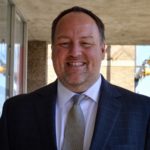 Craig Nash has lived in Waco since 2000. Since then he has worked at Baylor, been a seminary student, managed a hotel restaurant, been the “Barnes and Noble guy,” pastored a church and once again works for Baylor through the Texas Hunger Initiative. He lives with his dog Jane, religiously re-watches the same 4 series on Netflix over and over again, and considers himself an amateur country music historian.
Craig Nash has lived in Waco since 2000. Since then he has worked at Baylor, been a seminary student, managed a hotel restaurant, been the “Barnes and Noble guy,” pastored a church and once again works for Baylor through the Texas Hunger Initiative. He lives with his dog Jane, religiously re-watches the same 4 series on Netflix over and over again, and considers himself an amateur country music historian.
The Act Locally Waco blog publishes posts with a connection to these aspirations for Waco. If you are interested in writing for the Act Locally Waco Blog, please email [email protected] for more information.
By Craig Nash
Last year was my first summer to help promote the Summer Meals program in the Waco area, and my favorite story from that time was from a midsummer event the Texas Hunger Initiative arranged at Bellmead’s Brame Park. The park is centrally located, has a splash pad to keep kids and families cool during the hot Heart of Texas summer months, and is a stop along La Vega ISD’s “Lunch Bus Express.” After games had been played and balloons passed out, I sat down at the picnic tables to visit with some families and hear their thoughts about the summer meal program. The story of two families in particular have remained with me, and fuels much of my motivation to expand participation in the Summer Food Service Program.
One was a family with three children, accompanied by their parents and an aunt. The dad worked nights and was blurry eyed after taking a quick nap before joining the family at the park for playtime and lunch. Another group of five kids, all siblings and cousins, was there with a grandmother who takes care of them during the summer while moms and dads are at work. Both families seemed close to the other, and I assumed they were connected somehow through church, school or another of the many avenues where we become friends with other people. When I asked how they knew each other, the sleepy-eyed dad said, “Through this. Summer lunches at the park.” The kids all met the previous summer, and the two families have been close ever since.
Food is never just about food, and child nutrition programs are about more than just providing healthy meals to kids. Did you know that one of the most intimate activities you can do with another human is share a meal? It’s why we eat together so much, and why a city the size of ours will never lack of sit-down restaurants. Sitting across a table from another person while participating in the very primal act of fueling your body with nourishment creates invisible bonds that are helpful to survival. Do you want to strengthen your family? Sit down at the table for a meal. Is your church or civic organization needing something to reestablish comradery and affection for each other? You could spend thousands of dollars on a speaker to come talk about the importance of togetherness, or you can schedule a potluck supper and achieve more affect for less money. And if you want to increase the benefits of neighborliness, developing your community into a place where all are welcome and cared for, you can find a way to share a meal with your neighbors.
Summer Meal providers are gearing up to give you an opportunity to strengthen your community, and there is one surefire thing that parents and caregivers of children can do to help them out: Show up. If your child is in need of food, (which, last I checked, is the case for around 100% of all kids,) then the summer lunch program is for you.
I’m particularly excited about a new lunch site this summer. The Waco ISD “Meals on the Bus” will be making a stop at the newly renovated Seley Park. Calvary Baptist Church, located next door to the park, and other community organizations are planning games and activities for kids at various times during the week. Make it a point to stop by and get to know your neighbors. There will be a special kick-off event for this site on June 5th. To follow details, and learn about times for this and other summer meal locations and times, follow “Texas Hunger Initiative—Waco Regional Office” on Facebook, where we will be sharing all that information as it becomes available.
 Craig Nash has lived in Waco since 2000. Since then he has worked at Baylor, been a seminary student, managed a hotel restaurant, been the “Barnes and Noble guy,” pastored a church and once again works for Baylor through the Texas Hunger Initiative. He lives with his dog Jane, religiously re-watches the same 4 series on Netflix over and over again, and considers himself an amateur country music historian.
Craig Nash has lived in Waco since 2000. Since then he has worked at Baylor, been a seminary student, managed a hotel restaurant, been the “Barnes and Noble guy,” pastored a church and once again works for Baylor through the Texas Hunger Initiative. He lives with his dog Jane, religiously re-watches the same 4 series on Netflix over and over again, and considers himself an amateur country music historian.
The Act Locally Waco blog publishes posts with a connection to these aspirations for Waco. If you are interested in writing for the Act Locally Waco Blog, please email [email protected] for more information.
By Craig Nash
This year I have had the pleasure of working with students at Indian Spring Middle School in a Service Learning Group focusing on the issues of Poverty and Hunger in McLennan County. The Service Learning program, led by Travis Cheatham, combines educating students on “real world” concerns and equipping them to use their own gifts and talents in working toward creating a better world for themselves and their neighbors. During the fall, we talked about food insecurity and its causes. Students learned about minimum and living wages, creating a personal budget and food deserts. They were introduced to ideas about effective ways to engage in social change and given brief synopses of the many organizations in Waco dedicated to addressing hunger. They were particularly interested in three specific organizations– Caritas, Mission Waco’s Jubilee Food Market and Meals & Wheels of Waco. So, on January 30, we hopped on a bus for a field trip to those locations.
At Caritas, Director Buddy Edwards met us in the office area and spoke about the administrative work that goes into running Waco’s largest food pantry. Here the students heard about all the other services Caritas provides, such as GED training, SNAP enrollment and health education. Then Mr. Edwards led us through the rest of the facility, including the food distribution area, warehouse and front intake area. One of the things we brought up continually to students, a concept that many of them already knew well by experience, is that many people in our community who receive free food and other social services are people who have full time jobs, (some more than one) and often look just like people we are all friends and family with. The opportunity to see this firsthand was, I believe, a transformative experience.
The highlight of the students’ experience at Caritas was getting to enter the large walk-in freezer and experience zero-degree temperatures, and also taking a picture outside the beautifully painted new produce trailer located behind the building.
From Caritas, we traveled to the Jubilee Food Market where we met Kathy Wise of Mission Waco. On the way there, Mr. Cheatham gave students a lesson in the history of the Brook Oaks neighborhood, from its early days as an enclave of wealthy Wacoans, to its decline, to recent successes in revitalizion. Ms. Wise filled in some of the gaps, describing the neighborhood as being in a food desert before the acquisition of the building where the Market currently stands. She told stories of neighbors who often ended up paying as much for rides to the nearest grocery store as they do on groceries. Last fall students learned about the concept of food deserts, so this was a great oportunity for them to see first hand an organization working to alleviate this challenge.
The morning ended at Meals & Wheels, where Janet Nors walked students through the process of getting food from their facility to distribution hubs around the Heart of Texas and into the homes of seniors. Here, students asked many well-informed questions, such as how someone qualifies for receiving meals from M&W and what are the nutritional components of each meal. They seemed most surprised to learn that the organization also delivers pet food to its clients, and were intrigued at hearing the reason behind this, which is that many seniors in need will often give any food they receive to their pets, knowing they may not eat otherwise.
At the end of each stop, students asked each tour guide ways they could help. Ideas generated were helping Caritas mark off bar-codes from their gifts-in-kind, sharing flyers for Jubilee Food Market, and putting on a pet food drive for Meals & Wheels. They are currently considering which of these they are most excited about and capable of operating. I’m excited to see what they come up with.
I suspect the field trip was as meaningful for me as it was for them. In my role at Texas Hunger Initiative, I have the honor of working with folks all around the city working to alleviate hunger but rarely get to see them in their element like I was able to with these students. The dedication and joy I witnessed as they were in their “natural habitat” was inspiring, and I’m happy the students were able to witness that as well. If you see any of them out and about town, give them a huge “Thank You” for what they do, and the impact they have on our city.
 Craig Nash has lived in Waco since 2000. Since then he has worked at Baylor, been a seminary student, managed a hotel restaurant, been the “Barnes and Noble guy,” pastored a church and once again works for Baylor through the Texas Hunger Initiative. He lives with his dog Jane, religiously re-watches the same 4 series on Netflix over and over again, and considers himself an amateur country music historian.
Craig Nash has lived in Waco since 2000. Since then he has worked at Baylor, been a seminary student, managed a hotel restaurant, been the “Barnes and Noble guy,” pastored a church and once again works for Baylor through the Texas Hunger Initiative. He lives with his dog Jane, religiously re-watches the same 4 series on Netflix over and over again, and considers himself an amateur country music historian.
The Act Locally Waco blog publishes posts with a connection to these aspirations for Waco. If you are interested in writing for the Act Locally Waco Blog, please email [email protected] for more information.
By Craig Nash
On the week before Thanksgiving every year the National Coalition for the Homeless commemorates National Hunger and Homelessness Awareness week, in an effort to draw attention to some of the most vulnerable of our neighbors. Waco is home to numerous non-profits, churches and focused initiatives to address the issue of homelessness and hunger, such as The Gospel Café, Salvation Army and Caritas, just to name a few. The newest of these is The Cove, which is dedicated to providing a safe space in the evenings for the students of Waco ISD who find themselves, for whatever reason, without a permanent home.
In addition to tutoring assistance, connections to social services and providing a place to shower and wash clothes, The Cove has partnered with several churches and other community organizations to provide a warm, nutritious meal for students every school day. Meals are served family style, which gives students an opportunity to experience a sense of normalcy and “home.” Kenneth McAdam, an MSW intern for The Cove, says that both the students and staff are enjoying the meals, and the partnership is vital to the current success of the organization.
Currently meals are provided by groups from Antioch Community Church, St. Alban’s Episcopal Church, and Baylor’s Campus Kitchen. Wednesday meals are provided on a rotating basis by other individuals, churches and non-profits. They have meals being provided through the end of the year, but are beginning to look ahead for early next year. If you or your organization is interested in participating in this exciting and important effort to alleviate the burdens of hunger and homelessness among Waco ISD’s students, send an email to [email protected]. For more information about services The Cove provides, and how you can help, their website is www.thecovewaco.org.
 Craig Nash has lived in Waco since 2000. Since then he has worked at Baylor, been a seminary student, managed a hotel restaurant, been the “Barnes and Noble guy,” pastored a church and once again works for Baylor through the Texas Hunger Initiative. He lives with his dog Jane, religiously re-watches the same 4 series on Netflix over and over again, and considers himself an amateur country music historian.
Craig Nash has lived in Waco since 2000. Since then he has worked at Baylor, been a seminary student, managed a hotel restaurant, been the “Barnes and Noble guy,” pastored a church and once again works for Baylor through the Texas Hunger Initiative. He lives with his dog Jane, religiously re-watches the same 4 series on Netflix over and over again, and considers himself an amateur country music historian.
The Act Locally Waco blog publishes posts with a connection to these aspirations for Waco. If you are interested in writing for the Act Locally Waco Blog, please email [email protected] for more information.
By Craig Nash
I don’t remember how old I was. Old enough to remember, I suppose. If the research I conducted on the historical conditions that led to this memory is correct, probably somewhere between three and six. It’s one of those cloudy early-life memories, the type you attach details and, more importantly, meaning to decades after it occurs. It’s also one of those random memories that isn’t constantly present, but presents itself at random times throughout my life, reminding me of how transformative the experience was, simply by virtue of its memory sticking around.
We were at the baseball field behind the school, my mom, sister and I. I want to say it was cold, but perhaps that is my mind adding editorial flourish to mimic what I was sensing. There was a crowd, but not for a game. I remember feeling out of place, like everyone but us knew the drill– when the truck would arrive, how to line up, what identification to have ready.
I remember my sister being excited, like she knew something I didn’t. When the truck arrived and backed up to the line, and it was our turn, she ran into the trailer with the paper bag as my mom told her what to put in it.
On our walk home, she took the pre-packaged foods out one-by-one to show us what we had. There’s only one thing I remember about the experience that I know is completely true, because it was so out of the ordinary. The food had generic packaging. Not “generic” in the “off brand, purchased at a discount store” sense, but “generic” in the sense that the packages and labels on the cans were white with simple black lettering identifying what was inside: Beans. Cheese. Noodles. Corn.
It was like food packages in the cartoons.
I remember being intrigued by this. If I could have explained what was going on in my mind, I would have said, “Mom, this is weird. This food doesn’t look like the kind we get in the store.” But in later years when the memory would peak back into my brain, the intrigue turned to shame as I realized what all this meant.
We were poor.
Dad worked for the Kelly Springfield Tire Company in Tyler, like most of the dads in the small town I grew up in. It was a union job, which was good when it was good, but not so good when layoffs and strikes occurred. It also meant that we were never in severe need for too long. (This wouldn’t be the case for Kelly families decades later, when the company closed the plant after demanding more and more concessions from its workers.) But the times of scarcity, though rare, were enough to leave a mark on me.
I often think about this experience as I am out and about, observing the many ways in which Wacoans pitch in to help our hungry citizens. I’m thankful there was a “safety net” for my family, just like there is for families all across our city. But I also think about the shame I felt at being in temporary poverty, what that did to my psyche, and I wonder about the future memories of children who are in perpetual poverty. This is why programs like SNAP and WIC are so important, (aside from the fact that they are proven to work.) They give parents the dignity of walking down a grocery store aisle with their children and making choices for their family, like every other family in the community.
It’s why I am thankful that school districts like Waco and La Vega ISD offer school breakfast and lunch free of charge to all students, so no child has to be singled out based on their ability to pay.
Our inclination to help is a good one. And sometimes, like when half a town loses its job due to layoffs, extraordinary measures need to be taken to get food to people in extraordinary ways. But my hope and prayer is that we will strive to find ways to get food to people in ordinary ways, that draws attention neither to the giver or the receiver, so that the memories of our children will only be those of food at the table, not how it got there.
 Craig Nash has lived in Waco since 2000. Since then he has worked at Baylor, been a seminary student, managed a hotel restaurant, been the “Barnes and Noble guy,” pastored a church and once again works for Baylor through the Texas Hunger Initiative. He lives with his dog Jane, religiously re-watches the same 4 series on Netflix over and over again, and considers himself an amateur country music historian.
Craig Nash has lived in Waco since 2000. Since then he has worked at Baylor, been a seminary student, managed a hotel restaurant, been the “Barnes and Noble guy,” pastored a church and once again works for Baylor through the Texas Hunger Initiative. He lives with his dog Jane, religiously re-watches the same 4 series on Netflix over and over again, and considers himself an amateur country music historian.
The Act Locally Waco blog publishes posts with a connection to these aspirations for Waco. If you are interested in writing for the Act Locally Waco Blog, please email [email protected] for more information.
By Craig Nash
This summer, the great people at Share our Strength provided the Waco Texas Hunger Initiative Regional Office with two Youth Ambassadors—students who helped us operate and evaluate the Summer Food Service Program. Below is a reflection on the summer from Sydney Brown, one of the students who served alongside Leah Reed. Both Sydney and Leah provided us with a wealth of energy and wisdom as we sought to improve the Summer Meal experience for Waco children.
Plans are already underway for summer 2017, and I am putting together a Child Hunger Team of volunteers from the community to begin mapping out strategies. If you are interested in serving, please email [email protected].
***
My name is Sydney Brown. I’m originally from Kansas City, Missouri and currently a Junior Public Health major at Baylor. For as long as I can remember I have been interested in how nutrition directly affects the well being of local communities. This summer I was fortunate to have the opportunity to work as a Youth Ambassador for The Texas Hunger Initiative’s Waco Regional Office, which has been a perfect mix of nutrition work and community interaction. I have had the privilege of being on the front lines of the USDA Summer Meals program and to see how hunger during the summer affects the lives of our young people. From serving meals at sites to playing with children at Summer Meals Celebration events, I have received a well-rounded look at what hunger in Waco looks like for children and what is being done to combat it.
Having worked as a Youth Ambassador last Spring in THI’s regional office, doing research on establishing meal sites, there were times when I could feel a little disconnected from the issue of hunger. But having the opportunity to actually be at the sites and to interact with the program and its participants has helped to give me a more full picture of the Summer Meals program. I have met so many incredible families that take advantage of the summer meals program, visiting with them and hearing their stories.
One of my favorite events to participate in this summer was our Summer Meals Celebration event at Brame Park in Bellmead. I have found that summer meal sites which have heavy traffic in the beginning of summer sometimes have trouble maintaining that through the duration of the program. One of our goals with the Summer Meals Celebration event was to get kids excited again about La Vega’s “Meals on the Bus” program. La Vega ISD has taken one of their school buses and converted it into a Lunch Meals Express, which transports food to areas where kids are highly concentrated and provides an air-conditioned environment for children to enjoy their lunch.
We collaborated with La Vega ISD and St. Paul Lutheran Church as well as with some of Baylor’s Campus Kitchen Americorps Vistas to provide fun games and activities for the kids. The kids were able to come out and play beanbag toss, mess around with water balloons, and try their best to win the three-legged race before eating lunch on the bus. I loved that through the games and activities this meal stop became more than just a place to get a free lunch, but now a place to come and play with friends. I got to talk to some of the families that were at the park and was told that many of them came to the park every day to enjoy lunch and had now become close friends with one another. I loved knowing that the summer meals program had brought people together as a community, not only in sharing a meal together but also in creating friendships with one another. The summer meals program has been such a joy to be a part of and I am so encouraged by it. This summer has allowed me to get plugged into the Waco community by being a part of an amazing program.
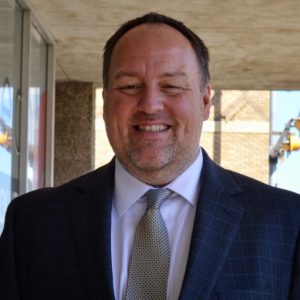 Craig Nash has lived in Waco since 2000. Since then he has worked at Baylor, been a seminary student, managed a hotel restaurant, been the “Barnes and Noble guy,” pastored a church and once again works for Baylor through the Texas Hunger Initiative. He lives with his dog Jane, religiously re-watches the same 4 series on Netflix over and over again, and considers himself an amateur country music historian.
Craig Nash has lived in Waco since 2000. Since then he has worked at Baylor, been a seminary student, managed a hotel restaurant, been the “Barnes and Noble guy,” pastored a church and once again works for Baylor through the Texas Hunger Initiative. He lives with his dog Jane, religiously re-watches the same 4 series on Netflix over and over again, and considers himself an amateur country music historian.
The Act Locally Waco blog publishes posts with a connection to these aspirations for Waco. If you are interested in writing for the Act Locally Waco Blog, please email [email protected] for more information.
By Liz Ligawa
Her name was Lulu. She was from Vietnam, and seemed to be around 70 years old. I gently handed Lulu a flyer we were sharing with those experiencing housing insecurity. It was about the worship service which would be held in the park on Tuesday, and the Sunday service which would be held at the church followed by a meal. Lulu looked up at me quizzically and replied, “We have no food. Nobody come today. We are hungry.” The day was Saturday.
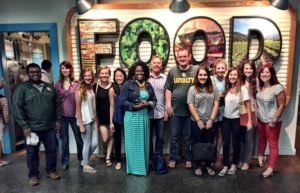 I had been looking forward to this D.C. Hunger in America trip for the past few months. My natural inclination towards advocacy seemed to fit well with what Baylor Missions and the Texas Hunger Initiative were working on in D.C. with regard to addressing the need of food security. I was ready. Who would not want to help with this issue?
I had been looking forward to this D.C. Hunger in America trip for the past few months. My natural inclination towards advocacy seemed to fit well with what Baylor Missions and the Texas Hunger Initiative were working on in D.C. with regard to addressing the need of food security. I was ready. Who would not want to help with this issue?
Not many people know this, but the way Ashley Thornton, the Director of Act Locally Waco, and I became acquainted was through this Act Locally Waco blog. I had a dissenting opinion on an article that was posted, and she in turn asked if I would consider contributing to the blog. She wanted to get together to chat. I was stunned (and a little bit scared). Who responds to dissent in this way? Ashley does. But she does not respond in this way to dissuade you from your position; she honors dissent on the search to find ways to include more voices in the conversation. On this trip, I would realize that I would have to also find ways to include others in this dialogue-especially when talking about the economically poor.
“1 out of 7 senior adults are food insecure.” –National Council on Aging
I looked around to see if there was anyone with Lulu. She did not have a home, but surely she was not out here by herself, right? I wanted to know, but Lulu mainly spoke Vietnamese. One of the fellow students on the trip was also Vietnamese…and Lulu was able to share her story. Lulu was alone. Her son had left her.
During the week in D.C., we had several opportunities to use our voices to influence political will. We participated in advocacy meetings on the capitol with representatives. We met with heads at USDA, and discussed policy implications with direct reports to President Obama. We visited several agencies committed to addressing food insecurity, and even attended a Sub-Committee hearing on food benefit programs. There was a lot of talking (and walking). But there, in front of Lulu, I was faced with my own limitations. I had been talking about the need for food security all week, but I did not even have a granola bar in my pocket to offer Lulu. I felt like I failed her.
That is when something amazing happened. A small group of hipster guys (dissenters in their own right) started setting up a table at the far end of the park. I was curious as to what they were doing, but I wanted to complete the assignment that brought us to the park, and share with others the opportunities available through the church that sponsored us. After a few moments, my curiosity won out, and I decided to check them out.
The first thing I noticed was a banner, “Food Not Bombs”, hanging over the front of the table. Dissent. At first I didn’t notice any food with them, and I thought it was in poor taste to protest against funds for weaponry among those who need food. I was not against their dissension, I just did not understand its place. But then I started a conversation, and realized not only did they have food, but they had fresh fruit, salad, and soup was on the way. They were there to serve those who were hungry. I could think of nothing more honoring to do than join them.
What happened in the park that day reminds me of the model that the Texas Hunger Initiative uses to serve well while reducing hunger: Public, Private Partnerships. Don’t let the term frighten you if you are not familiar with it. It just boils down to: “Many hands make lighter the load”.
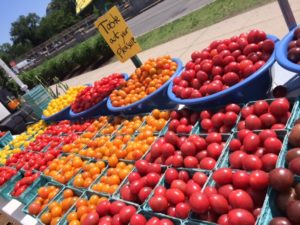 THI is doing some great work with this model, and they are helping people like us, and organizations we are a part of, figure out even greater ways to serve. I had to look further than what I thought the hipsters were doing to see that we shared in significant and important work together. So, if this is your thing, you should check THI out: www.baylor.edu/texashunger. Tell Doug that Liz sent you.
THI is doing some great work with this model, and they are helping people like us, and organizations we are a part of, figure out even greater ways to serve. I had to look further than what I thought the hipsters were doing to see that we shared in significant and important work together. So, if this is your thing, you should check THI out: www.baylor.edu/texashunger. Tell Doug that Liz sent you.
“It’s my pleasure to serve you,” I would repeat over, and over again as I placed a ladle-full of fruit in a cup for welcoming hands. “It’s my pleasure to serve you.” There were so many gathered. I was going as fast as I could, but still wanted to be gentle, and kind with every cup offered. All of a sudden, the group in front of me parts down the middle, and a tiny lady comes through offering up gloved hands, and soft eyes. My heart leaps, and I can barely get a whisper through my tears, “It’s my pleasure to serve you, Lulu…My pleasure to serve you.”
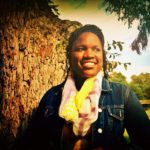 This post was written by Liz Ligawa. Liz is a graduate student of Baylor University where she has found the perfect expression of her community-centered heart in the MDiv/MSW degree program. With a concentration on Community Practice, she is also the adoring mother of one son, Elijah, who prefers to be regarded in public as Spider-Man. She may be reached at [email protected].
This post was written by Liz Ligawa. Liz is a graduate student of Baylor University where she has found the perfect expression of her community-centered heart in the MDiv/MSW degree program. With a concentration on Community Practice, she is also the adoring mother of one son, Elijah, who prefers to be regarded in public as Spider-Man. She may be reached at [email protected].
The Act Locally Waco blog publishes posts with a connection to these aspirations for Waco. If you are interested in writing for the Act Locally Waco Blog, please email [email protected] for more information.
By Matt Hess
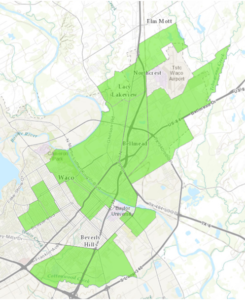
The areas marked green have low income and low access to food according to the USDA Food Access Research Atlas.
Have you ever thought about how difficult it is to get nutritious food if you don’t have a car? The USDA defines a “food desert” as a geographic area where affordable and nutritious food is difficult to obtain, particularly for those without access to an automobile. Research links food deserts to diet-related health problems like diabetes, obesity and heart disease. 57,983 people in Waco live in USDA-declared “Food Desert” tracts; that is 46.5% of our total population. This issue received quite a bit of attention recently when two HEB stores merged into one and a third HEB closed its doors – creating even greater distances between affordable, healthy food and some of the people who need it. Unfortunately, it seems like many of the areas where people most need access to fresh fruits and vegetables are not the most practical, from a business point of view, for a food retailer to set up shop.
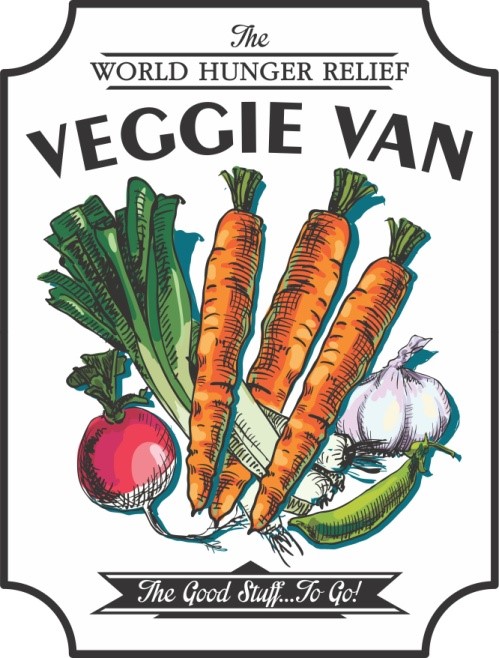 With all that in mind, World Hunger Relief, Inc. (WHRI) is launching a new program called the “Veggie Van.” The Veggie Van, a mobile vegetable stand, will allow us to sell vegetables for short periods of time when large crowds gather, i.e. at the end of the school day or after a church service. This will allow us to keep our costs low while providing vegetables in a way that is convenient to families.
With all that in mind, World Hunger Relief, Inc. (WHRI) is launching a new program called the “Veggie Van.” The Veggie Van, a mobile vegetable stand, will allow us to sell vegetables for short periods of time when large crowds gather, i.e. at the end of the school day or after a church service. This will allow us to keep our costs low while providing vegetables in a way that is convenient to families.
The Veggie Van idea is the result of study, careful thought, conversation, experimentation and collaboration around the subject of nutrition in Waco. In the last several years there have been numerous assessments and community input meetings conducted about this issue. The WHRI staff and I attended as many of these meetings as possible.
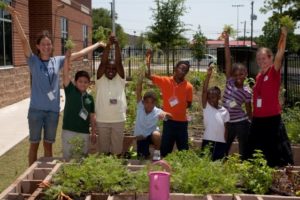 Ten years ago WHRI completed an assessment of food issues in our area. This assessment led us to pursue school gardening as a way to address a need expressed by the community and to develop relationships for future efforts at improving the nutrition of those in Waco. School gardens are still an important part of our strategy, this year there are 5 schools that are visited weekly by our interns. In these programs I have seen students eagerly trying new vegetables as they develop skills in gardening and food production. As students’ interest in healthy eating increased, we became more aware of food deserts in our community. We encourage students to eat healthily but the environment in their neighborhoods and lack of access to fresh produce makes it difficult for their families to change their eating habits.
Ten years ago WHRI completed an assessment of food issues in our area. This assessment led us to pursue school gardening as a way to address a need expressed by the community and to develop relationships for future efforts at improving the nutrition of those in Waco. School gardens are still an important part of our strategy, this year there are 5 schools that are visited weekly by our interns. In these programs I have seen students eagerly trying new vegetables as they develop skills in gardening and food production. As students’ interest in healthy eating increased, we became more aware of food deserts in our community. We encourage students to eat healthily but the environment in their neighborhoods and lack of access to fresh produce makes it difficult for their families to change their eating habits.
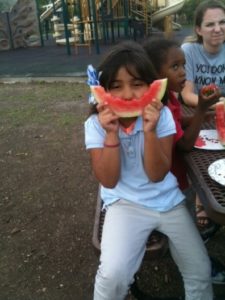 Through the Act Locally Waco book club I read the book Switch by Chip and Dan Heath. My short synopsis of the book is that to make personal or group changes three things need to be in place: (1) knowledge of why the change needs to be made, (2) motivation to change, and (3) an environment that allows for this change. Our work with the school garden clubs touches on the first two — we have seen an increase in knowledge and motivation about eating healthy foods. We are also working with many partners who provide education about good nutrition, cooking skills and how to stretch food dollars. Building an environment that allows for change is more challenging, we think the Veggie Van will be a good way to begin to address that issue.
Through the Act Locally Waco book club I read the book Switch by Chip and Dan Heath. My short synopsis of the book is that to make personal or group changes three things need to be in place: (1) knowledge of why the change needs to be made, (2) motivation to change, and (3) an environment that allows for this change. Our work with the school garden clubs touches on the first two — we have seen an increase in knowledge and motivation about eating healthy foods. We are also working with many partners who provide education about good nutrition, cooking skills and how to stretch food dollars. Building an environment that allows for change is more challenging, we think the Veggie Van will be a good way to begin to address that issue.
Starting, January 14, 2015, the Veggie Van will be selling vegetables with the congregation of St. Luke AME church on the corner of Elm St. at Church St. near the Paul Quinn Campus. At WHRI we hold tightly to the value of working with and supporting other organizations. One of the most exciting things about the Veggie Van is that it will let us add value to work St. Luke and other churches and organizations are already doing in Waco. St. Luke has a great proactive food ministry including a community garden and an outreach program that helps people sign up for SNAP benefits (food stamps) right at the church. The Veggie Van will be a natural supplement to these existing programs. As we look for other locations we are hoping to work with other organizations who are already doing good work in the area of food and nutrition.
We would love to include you in our holistic food ministry. I hope you come and visit us at the van and pick up some great locally grown food for your family. We will be looking for volunteers to help on the van and to help spread the word throughout the community. If you are interested in helping, or if you are just curious, give us a call (254-799-5611), drop us an e-mail ([email protected]) or come see us at one of these opening week events:
- January 14th – 3:00 PM – the Veggie Van opens for business for the first time at St. Luke AME.
- January 14th – 6:00 PM – the Veggie Van blessing ceremony at St. Luke AME.
- January 17th – 11:00 AM – ribbon cutting at the Waco Downtown Farmers Market.
- January 19th – 11:00-2:00 – The van will visit all of the gardens participating in the MLK Day Day of service the around Waco. We will have more details on our Facebook soon.
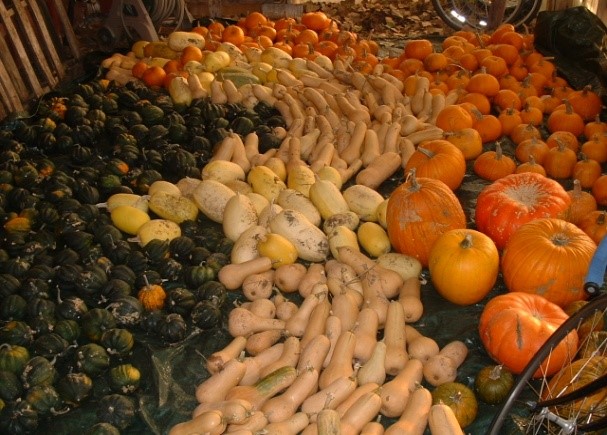 For more information about the Veggie Van Project and how you can get involved, please take a moment to visit the website: worldhungerrelief.org/veggie-van, or follow us on social media (Facebook: facebook.com/whriwaco. Twitter:@whriwaco). If you are interested in hosting the van at your church, organization, or other location please fill out the application here. If you would like to contribute financially, we would sure appreciate it. Here’s the link: Donate.
For more information about the Veggie Van Project and how you can get involved, please take a moment to visit the website: worldhungerrelief.org/veggie-van, or follow us on social media (Facebook: facebook.com/whriwaco. Twitter:@whriwaco). If you are interested in hosting the van at your church, organization, or other location please fill out the application here. If you would like to contribute financially, we would sure appreciate it. Here’s the link: Donate.
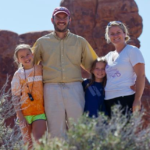 Today’s Act Locally Waco blog post was written by Matt Hess. Matt grew up in Boulder, CO. He came to Waco to attend Baylor where he received a Bachelors of Science in Education in History. Afterwards, he stayed in Waco and taught at a school for troubled youth. As a teacher, he saw the difference that working with animals and gardens made on his students, and he began volunteering at WHRI partially with the intention of developing more skills in agriculture and community development. Matt joined WHRI as the Education Director in 2006 years and 6 years later transitioned to his role as Executive Director.
Today’s Act Locally Waco blog post was written by Matt Hess. Matt grew up in Boulder, CO. He came to Waco to attend Baylor where he received a Bachelors of Science in Education in History. Afterwards, he stayed in Waco and taught at a school for troubled youth. As a teacher, he saw the difference that working with animals and gardens made on his students, and he began volunteering at WHRI partially with the intention of developing more skills in agriculture and community development. Matt joined WHRI as the Education Director in 2006 years and 6 years later transitioned to his role as Executive Director.
The Act Locally Waco blog publishes posts with a connection to these aspirations for Waco. If you are interested in writing for the Act Locally Waco Blog, please email [email protected] for more information.
By Liz Ligawa
The previous month had closed its doors, taking along with it the security of minor accomplishments. Rent: paid. She had grown to appreciate such victories as they were hard won; however, they rarely lingered long. This life still felt odd to her- the newly poor. She was not yet adept at balancing the weight of a community’s conclusions concerning the economically poor. She struggled against this label. At any rate, she still found herself at this uncomfortable threshold- the bewitching hour, if you will. This is the place where settled becomes uncertain. Done becomes undone. Exclamations curl into question marks. The place when the clock strikes midnight…the first day of the month.
Responding to a prompt the other week at In The Words of Womyn Writing Circle, I explored the factors that pigment how we see one another. We have all done it before – created a backstory to a situation with little, or no information. For instance, take the couple in the car idling next to yours at the red light. The conversation seems quite animated. It is easy to create an entire commentary based on just what is seen. We think they are in an argument, or maybe perhaps it’s charades…yes, definitely charades. But can we get the real picture without words? The ways we interpret what we see in the world and the ways we determine how we should respond to others come to us through pipelines which preceded our generation, our nation, and even our society. One woman’s story shows us how.
She slowly left the office which was connected to the place where God’s people gather, trying to shake the heavy haze of defeat from her mind. She had asked for aid. She was denied. This is not an unusual story, but she wondered what could have informed the greeter’s conclusion. Maybe it was her bare ring finger, freshly unadorned, yet still declaring her to be less than another whose finger resembled a more acceptable status. Maybe the problem was her empty hands whose emptiness looked more indolent than worn. It may have even been her accompanied left hip, sweetly occupied by a sleepy little one looking for a safe place to rest. What did the greeter see?
 There is a history to caring. My critical attention in Dr. Gaynor Yancey’s course, Urban Mission Issues, reminded me that societies have differed, historically, in their approach to meeting the needs of others. In Egyptian society, good deeds were recorded as Acts of Mercy in each person’s Book of the Dead. A fat Book of the Dead filled with Acts of Mercy was seen as contributing to a pleasant afterlife. This idea motivated the response to the needs of others. In the mother’s case above, however, declining to help her would still qualify as an Act of Mercy since it did not impose harm (Negative Confession). No need was actually met, but no harm was rendered. It sounds like parts of our current society are singing the same verse of a very old tune.
There is a history to caring. My critical attention in Dr. Gaynor Yancey’s course, Urban Mission Issues, reminded me that societies have differed, historically, in their approach to meeting the needs of others. In Egyptian society, good deeds were recorded as Acts of Mercy in each person’s Book of the Dead. A fat Book of the Dead filled with Acts of Mercy was seen as contributing to a pleasant afterlife. This idea motivated the response to the needs of others. In the mother’s case above, however, declining to help her would still qualify as an Act of Mercy since it did not impose harm (Negative Confession). No need was actually met, but no harm was rendered. It sounds like parts of our current society are singing the same verse of a very old tune.
Greek society demarcated the poor as either worthy, or unworthy. The “worthy poor” could receive care from the community; the unworthy poor were not as fortunate. Similarly, in Roman society, a person’s citizenship qualified him to receive from the community. This sole identifier served as an important indicator of determining the responsible party. Citizenship would answer this question, “Whose concern are you?”
As I listened to this mother, I saw reflections of these past societies intermingled with her story. The Negative Confession of the Egyptian society gives us the justification for “not doing”: not bringing harm, but neither bringing good. There is also the delineation of the Greek society making caring more necessary for one class of poor than the other. Then there are the remnants of the citizenship standard central to Roman society. I saw all of these in one story.
Now, we all have our reasons for giving, or choosing against giving. My interest does not concern imposing unnecessary feelings of guilt. I am, however, interested in calling attention to the motivations behind our giving, and maybe even encouraging some redistricting of our boundaries concerning who receives our care.
The mother thought about the greeter’s comment as she shuffled her little one into the seat: “I’m sorry, we can’t help you. Our resources are strictly for our members.” As she thought about the thousands of faces which gathered to worship in one of three services on Sundays, the mother wondered aloud, “She thinks I am not a member, but she didn’t even ask….”
The greeter had already created a backstory, and that informed her conclusion.
Just then, her little one softly questions, “Where are we going now, Mommy?” She does not know. Thirty seconds before this inquiry, she did. Now, she no longer does. She swallows hard and pushes shame aside long enough to smile down at the bright, waiting eyes, “Home.”
 This post was written by Liz Ligawa. Liz is a graduate student of Baylor University where she has found the perfect expression of her community-centered heart in the MDiv/MSW degree program. With a concentration on Community Practice, she is also the adoring mother of one son, Elijah, who prefers to be regarded in public as Spider-Man. She may be reached at [email protected].
This post was written by Liz Ligawa. Liz is a graduate student of Baylor University where she has found the perfect expression of her community-centered heart in the MDiv/MSW degree program. With a concentration on Community Practice, she is also the adoring mother of one son, Elijah, who prefers to be regarded in public as Spider-Man. She may be reached at [email protected].
The Act Locally Waco blog publishes posts with a connection to these aspirations for Waco. If you are interested in writing for the Act Locally Waco Blog, please email [email protected] for more information.
.
- « Previous
- 1
- 2
- 3
- 4
- Next »
